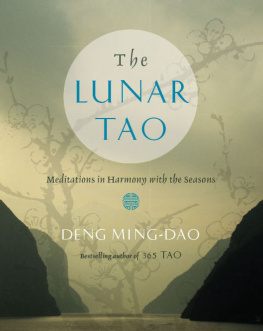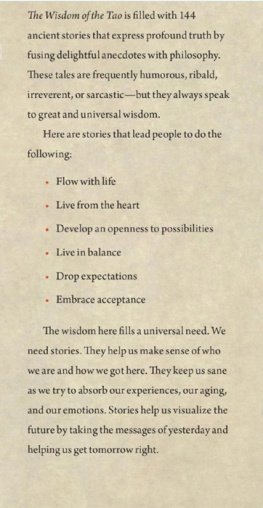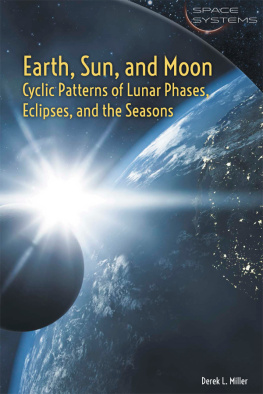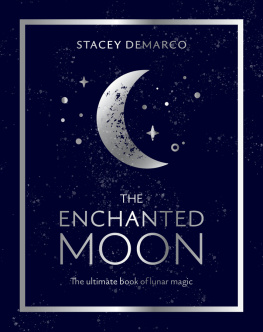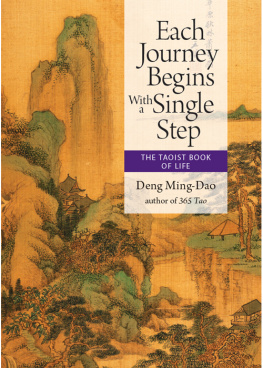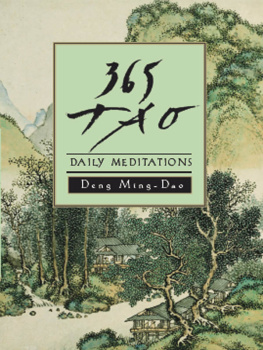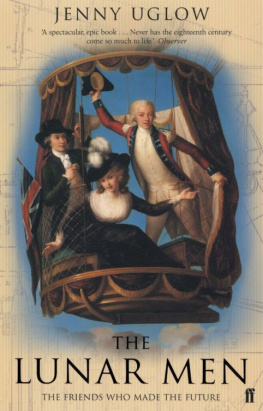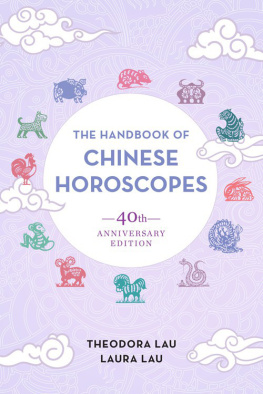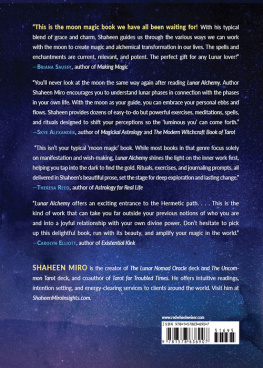
For Alison Jade
Contents
The format of this e-book has been adjusted slightly from the print edition. Please note that each days main entry begins with a couplet, is followed by a meditative essay, and is concluded with a summarizing thought in italics. After the concluding thought comes source material that appears as a sidebar in the print edition. Additional information on the format and structure of the book can be found in the introduction.
Furthermore, the cross-references noted in the print edition have been replaced with hyperlinks. Please note that because many instances may point to the same location in the text, the hyperlinks will work in only one direction. To return to your original location, use the back button on your e-reader.
My grandfather emigrated from southern China to the United States at the beginning of the twentieth century. When he arrived in San Francisco, he bought a Seth Thomas Office Calendar Double-Dial Wall Clock. It had a windup mechanism and a pendulum. My mother kept it when he died. Now shes passed away too, and it hangs in my home.
The clock has two white faces set vertically in a carved oak frame. Slender black hands on the upper face point to twelve elegant roman numerals. Two revolving cylinders set in the lower face name the month and the day of the week, and a single narrow hand points to black numbers around the circumference to indicate the day of the month. My grandfather brushed a four-word phrase from the Confucian classics on a semicircle of red paper and glued it to the lower face above the cylinders:
Esteem virtue; accept everyone.
Whenever he looked at the clock, he saw these words in his own calligraphy. They expressed the ideal he observed for the rest of his life.
When my grandfather named me Dao, (the same Chinese character as Tao), he set the theme of my life as boldly as that black ink on red paper. I didnt know it as a boy, struggling to master the strokes of my own name, but Tao would become a lifelong passion for me. It has taken me into middle age to learn that Taoism is as simple as my grandfathers clock: set forth an understanding, observe it, and live it constantly throughout each year.
My grandfather used three calendars. He dated his diary by the reign year of the emperor then on the throne in Beijing, Emperor Guangxu (18711908). As the owner of a garment factory in San Francisco, he used the Western calendar. But he, his family, and the entire community tracked their significant holidays and seasonal observations by the lunar calendar.
When it was the Spring Festival, the shops sold oranges and quince blossoms, and the family came together to celebrate the years beginning. During the time of the Clear Bright Festival, my grandfather spent the day on buses to and from the cemetery where he swept the graves. During the Dragon Boat Festival, my grandmother cooked special rice dumplings steamed in bamboo leaves. When the Moon Festival arrivedwhich coincided with my grandmothers birthdaythe family shared moon cakes and watched the harvest moon rise. As the year came to an end, my grandfather was careful to settle all debts and clean the home to prepare for a fresh start. There were always plenty of people in the housechildren, neighbors, factory workers, cousins visiting from afar. Each festival was a time of family reunion, and family meant even the most distant of relations or cherished friends.
Beginning with the first grade, I attended San Francisco public school during the day and then went to a Chinese school held in a churchs classrooms at night. I sat at old oak school desks carved with graffiti. Fluorescent lights buzzed overhead, their reflections flickering on the dark windows. The smell of pine-soot ink and mulberry paper mingled with the odor of crumbling plaster, old varnish, and ammonia-washed linoleum floors. The lessons were historical, moral, or poeticsometimes all three at once. The teaching method was the same as it had been in my grandfathers youth: memorization, recitation, and endless copying of words, idioms, and pages with a pointed brush. If we did not do well, the teachers ordered us to stand in a corner or dared us to cry as they hit us with chalkboard pointers, rulers, or yardsticks.
Occasionally, these harsh moments were tempered by sentimental reminiscences of China. At other times the teachers expanded on the folktales behind idioms such as refusal to abandon his wife were far more vivid than the ancient utterances we memorized.
But the talks always returned to morality. A favored source was the Twenty-Four Paragons of Filial Piety by Guo Jujing (12601368) . One of our teachers, Mr. Luo, gave rhapsodic accounts of one of the paragons, Wu Meng. The boys family was poor and had no mosquito netting. Each night, Wu Meng lay in his father and mothers bedroom until the insects were too satiated to bite his parents. We scoffed at how dumb he waswhich instantly brought more scolding.
Our skepticism was surpassed by puzzlement, however, because Mr. Luoa short, slight teetotaler, with thinning hair and rimless spectacles, ever-dressed in a double-breasted suit and tieenthusiastically praised the drunkenness of poets such as . He insisted that artists and poets needed wine to be free, to be creative, to become the greatest creators in all the centuries. They had to be completely drunk before they would fling ink to make beautiful paintings or write words in masterly calligraphy. If they tried the next day when they were sober, they couldnt match the work from the night before. He delighted in our confusion, adding that we had no hope of comprehending these works, let alone becoming great ourselves.
Headmaster Tan, with shoulders like a gravestone, gray hair slicked to his skull, and age spots on his wrinkled face, wandered in whenever he pleased. Our strict teachers deferred to him without hesitation. The headmasters message was unwavering: The ancients were perfect. Preserve tradition and never compromise it. You are all duck eggs, but you must try! Duck eggs were the shape of the number zero.
Nearly every studenteven those who were already native speakerswanted to quit Chinese school. We cheered each one who managed the feat as if he or she had escaped from prison. I went for nine years before my parents allowed me to withdraw. In a few years, though, I found myself returning to Chinese language, art, history, and religion during college and afterward. I soon began an intensive and ongoing study of martial arts and Taoism with private teachers.
I was driven by a mystery that appeared throughout the years. I kept running across the words Tao and Taoism. Maybe it began because it was my own name, but soon my interest in these scattered references went well beyond curiosity over a coincidence. Tao, I read, meant the Way, and I encountered many books with titles beginning with The Tao of or The Way of. Mai-Mai Szes The Way of Chinese Painting began with a chapter titled The Concept of Tao. To this day, a long list of words have been appended to The Tao of, including dating, Jeet Kune Do, sex, leadership, equus, physics, travel, motherhood, nutrition, Montessori, health, meditation, sobriety, Willie (Nelson), and Pooh. The Way of has been paired with shaman, herbs, shadows, master, sword, heart, energy, and Zen.
When studying the Chinese classics, I was fascinated with the varying meanings of the word Tao. Confucius said, A filial son must not deviate from his fathers way [Tao] for three years after his father has died. When discussing archery, he spoke of the ancient method [Tao]. He said that a scholar should set his determination on the truth [Tao]. He exhorted scholars to be devout, studious, and keep an excellent course [Tao] for all your life.... The world has a way [Tao] whose laws can be seen. There is no path [Tao] whose laws cannot be seen. My inquiry into Chinese philosophy soon led to Laozis book, the Daodejing (Tao Te ChingThe Book of the Way and Virtue), but the wordplay in the first two lines only made the book seem more abstruse:
Next page
